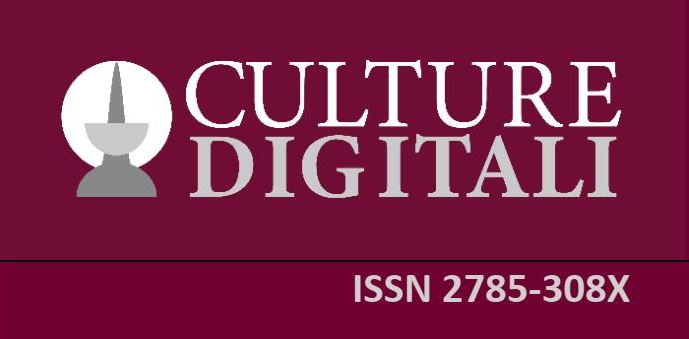Barbara Distefano
How to Move a Summer University in Digital Humanities Online and Keep It Human
The dehumanising effects of technology and the inequalities amplified by online education have been central topics in the public debate during the covid-19 pandemic. Similar concerns influenced the decision to postpone the 2020 edition of the European Summer University in Digital Humanities “Culture & Technology” (ESU), a training opportunity that the Leipzig University has been offering to students, young scholars and academics from Europe and beyond since 2010. While delaying the 11th edition, the organizers hoped that this would be held in presence, but in the end, due to the persistence of the covid restrictions, the ESU 2021 had to be moved completely online for the first time.
Despite the initial apprehension expressed by the initiator of the summer university, Professor Elizabeth Burr, the first virtual ESU has turned into a chance to discuss and observe how the digital space does not annihilate the human dimension and can, indeed, represent an open lab to equalize opportunities. From this perspective, the intensive training schedule – which run on different platforms and digital environments from the 2nd to the 13th of August – has been framed by two symbolic lectures: in the first one, entitled Reordering Priorities in the Poscovid Age: Human-Centered Technologies and Digital Humanities, Nuria Rodríguez has revisited the notion of ensimismamiento formulated by the Spanish philosopher Ortega y Gasset in his Meditations on technique, reflecting on realistic pathways for re-humanising technology; through the last one, a collective talk by Ray Siemens, Randa El Khatib, Luis Meneses, Graham Jensen and Caroline Winter, the ESU has invited to promote Open, Social Scholarship as a Foundation for Digital Humanities, reminding how technologies help to make knowledge accessible and significant to a wider audience.
The Summer University “Culture and Technology” has provided students and young scholars not only with a combination of practice and theoretical discussion, and with a rare chance to really enhance digital skills thanks to highly qualified experts and project-based workshops, but also with a remarkable model of transparency and equality. Putting the strongest ethical framework in play, the organizers finally rejected the possibility to offer two in-presence workshops for a restricted number of participants. As Professor Burr explains on the website of the Summer School, it would have been «unthinkable thus to have a small number of workshops on-site for the happy few who might be able to attend in person because of where they live, while all the others were forced to stay at home and take part online».
The spirit of the ESU has always been inclusive, multicultural and multilingual, however, the transnational openness scored a significant record in the first virtual edition. Indeed, the 60 participants were coming from 33 different countries from all over the world. Moreover, the efforts of the Summer University in fighting the underrepresentation of women in the domain of technology could be seen in the high presence of females among the successful applicants. As in the previous years, a distinctive element of the ESU has been the support to a considerable number of students and young scholars who had applied for a tuition fellowship. Specifically, the economical effort has come from the International Centre of the Leipzig University and the sponsors of the ESU, from the DAAD, the German Academic Exchange Service, and from the DARIAH-EU, the pan-European Digital Research Infrastructure for the Arts and Humanities.
The essence of DH as a field that breaks disciplinary borders was also reflected in the composition of the workshop-groups, which brought together scholars from very different research contexts, from Library Sciences, to Arts and Humanities and Computer Sciences. The eleven workshops offered by the ESU 2021 covered important areas of Digital Humanities, as well as different approaches, methods and tools: from humanities data to digital annotation and analysis of literary texts; from stylometry to mapping environment, digital archives, digital editions, etc. The program of the Summer University was divided into lectures, workshops, hands-on and teaser sessions, project and poster presentations, and enriched with four tours, which virtually took the participants to the Bibliotheca Albertina, to the German National Library, to the Museum of Musical Instruments and to the city of Leipzig respectively.
The organizers of the first online ESU had a lot of thinking in finding new ways and tools for community and network building. Among other things, they finally offered a #dhwellness channel on Slack and a dancing party on Topia. By putting a lot of effort on these apparently secondary aspects, they considered how important social interactions during a summer school may be for those scholars and students who work in isolation within non-DH departments. In conclusion, one of the most interesting results of the Summer University was that, already at the end of the first week, participants had started to overcome the de-humanising dimension of their learning environment. In this respect, the presentations of the workshops results showed clearly that, despite having to work from home with their own – more or less appropriate – tools, the group members spontaneously started to create not only professional, but also human connections, and to feel part of a community.
